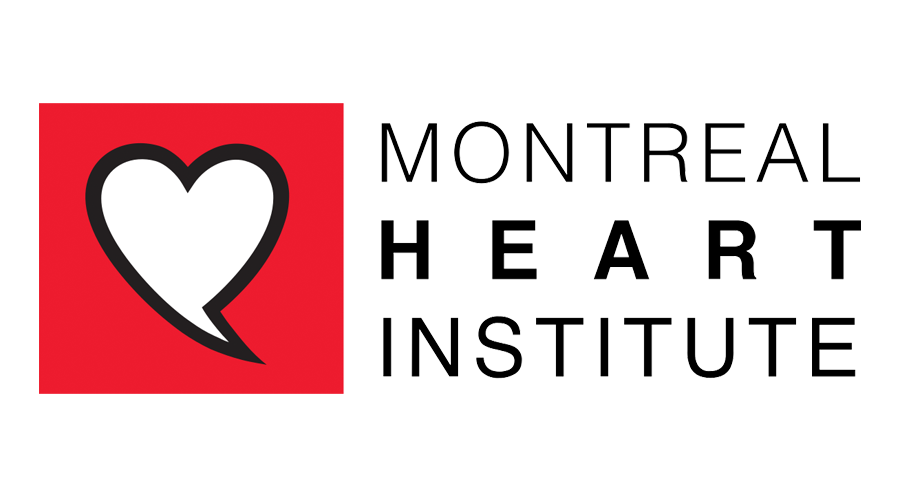CANet partnership with the creation of the Canadian Heart Function Alliance (CHF Alliance) NetworkThe Montreal Heart Institute leads a Pan-Canadian alliance aimed to improve health outcomes for Canadians living with Heart Failure
MAY 3, 2022 (MONTREAL, QC) – As the National Heart Failure Awareness Week begins, the Montreal Heart Institute announces the creation of the Canadian Heart Function Alliance (CHF Alliance) Network. Uniting an extensive network of researchers, cardiologists, patients, caregivers, Indigenous elders, policymakers and supporting organizations across the country, this pan-Canadian alliance aims to tackle the challenges of heart failure – a common condition that is often fatal, and on the rise in Canada.
The CHF Alliance spans eight provinces and one territory and involves 11 patient/caregiver partners; 13 Indigenous partners; and 132 investigators (42% women; two dozen early-career investigators) all collaborating on 23 research projects.
The CHF Alliance was made possible thanks to $5 million in support from the Canadian Institutes of Health Research (CIHR), in partnership with the Heart and Stroke Foundation of Canada, Mitacs, and the National Institute of Health’s National Heart, Lung and Blood Institute. To complement this investment, the CHF Alliance has already attracted matching funds (cash and in-kind) of more than $27 million.
Additional CHF Alliance partners include the HeartLife Foundation; the Canadian Cardiovascular Society; the Canadian Donation and Transplantation Research Program (CDTRP); the Cardiac Arrhythmia Network of Canada (CANet); and the Centre of Excellence on Partnership with Patients and the Public (CEPPP).
“Although we have a few treatments that reduce death from heart failure, mortality rates are still very high; 35 to 40 percent of people with heart failure die within five years – a figure comparable to several cancers,” says the CHF Alliance co-lead, Dr. Jean Rouleau, Professor of Medicine at the University of Montreal and a cardiologist at Montreal Heart Institute. “The most common cause of hospital admission for people 65 and over in Canada is an elevated condition known as decompensated heart failure.”
Marc Bains, a patient who lived with heart failure and Co-Founder of HeartLife Foundation – a national non-profit organization advocating for heart failure patients and caregivers – is co-leading the new alliance. “The CHF Alliance is patient-driven and incorporates a wide demographic of patients and their family caregivers from rural to urban communities and from children to seniors.”
Bains, whose own heart failure resulted in a heart transplant, notes that “although we don’t yet have a cure for heart failure, medical therapies and lifestyle changes can help people manage their condition. To that end, research – patient-informed research – is crucial. In fact, our HeartLife Charter of Patient Rights, which outlines a National Standard of Care for HF in Canada, includes the opportunity for patients to provide input into decisions regarding future heart failure research.”
Six university-based research hubs will form the backbone of the CHF Alliance:
- Translational Clinical Trials Centre at the Population Health Research Institute (PHRI) will explore whether novel approaches to treatment such as anti-inflammatory drugs, supplementation with a vitamin (thiamine), and reducing weight in obese people with HF will be beneficial, in addition to currently proven treatments. In addition, perhaps the largest and most comprehensive databases in the field worldwide, developed and housed at PHRI, will be probed to advance our understanding of heart failure using big data and advanced analytics such as artificial intelligence.
- Health Systems Research out of the University of British Columbia and the BC Provincial Health Services Authority, in collaboration with Western University, McMaster, University of Montreal, and Université de Sherbrooke will strive to improve the quality and access for patients to optimal heart failure care.
- Virtual Care at Western University in a patient-driven collaboration, will build on their already successful digital health and remote monitoring programs to improve access to optimal care for patients with limited mobility and living in remote areas and to improve the efficiency of our health care system.
- A National Cardiovascular Collaborative Project led by the SickKids Hospital will strive to discover age-specific therapies or drugs to treat cardiomyopathy and congenital heart disease in young children and teenagers – the leading causes of childhood heart failure – and will work with a world-class group interested in improving the care of adults with congenital heart disease and/or pulmonary hypertension out of the University of Ottawa.
- Researchers at the University of Saskatchewan, working with Indigenous Elders and Knowledge Holders will develop Indigenous-led approaches to improving the diagnosis and care of heart failure in Indigenous people.
- Researchers at the Université de Montréal will lead, help develop and co-ordinate the activities of the Network.
“I’m excited by the scope and breadth of the medical expertise and the lived experience of patients within our alliance,” says Dr. Rouleau. “Together we will investigate how to extend the lifespan and improve quality of life for the 20% of Canadians who get heart failure.”
“This network brings together the most innovative researchers in Canada in the field of heart failure and will be expected to make transformative discoveries in the next 5 years,” says Dr. Salim Yusuf, Distinguished Professor of Medicine at McMaster University, cardiologist at Hamilton Health Sciences, and founder and Executive Director of Population Health Research Institute.
About the Montreal Heart Institute
Founded in 1954, the Montreal Heart Institute constantly strives for the highest standards of excellence in the cardiovascular field through its leadership in clinical and fundamental research, ultra-specialized care, professional training, and prevention. It is home to Canada’s largest cardiology research centre, cardiovascular prevention centre, and cardiovascular genetics centre. The Institute is affiliated with the Université de Montréal and has more than 2,000 employees, including 245 physicians and more than 85 researchers. icm-mhi.org
-30-
Media relations:
Camille Gagné Turbide
Bief communication
[email protected]
514-755-5354
Source: The Montreal Heart Institute

